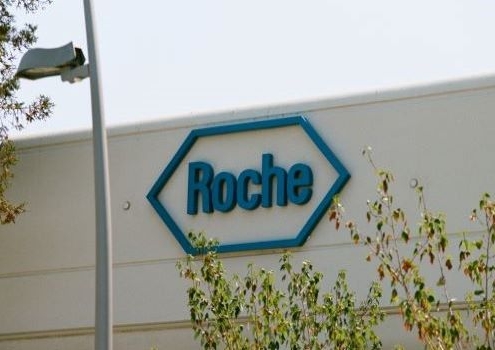Roche’s Latest Checkpoint Target Shows Promise for Lung Cancer
Roche’s Latest Checkpoint Target Shows Promise for Lung Cancer
Roche announced promising results for its anti-TIGIT checkpoint inhibitor tiragolumab in PD-L1-positive metastatic non-small cell lung cancer. Although anti-PD-L1 checkpoint inhibitors are the most common, companies are focused on developing drugs for newly discovered checkpoints, such as TIGIT and CTLA-4. TIGIT is an immune receptor found on some T cells and natural killer (NK) cells.
Tiragolumab was the first anti-TIGIT compound to be granted Breakthrough Therapy Designation (BTD) by the U.S. Food and Drug Administration (FDA) in combination with Tecentriq (atezolizumab) for the first-line treatment of people with NSCLC.
Roche reported follow-up efficacy, safety and patient-reported outcomes from the Phase II CITYSCAPE study of tiragolumab plus Tecentriq compared to Tecentriq alone as a first-line treatment for PD-L1-positive metastatic NSCLC. They are presenting it at the European Society for Medical Oncology (ESMO) Immuno-Oncology Congress 2021.
After two-and-a-half years of median follow-up, the combination continued to demonstrate improvement in the intention-to-treat (ITT) population, particularly driven by the population with high PD-L1 levels. In the ITT group, the combination decreased the risk of progression-free survival (PFS) by 38% and improved overall response rates (ORR) by 38.8% compared to 20.6% for Tecentriq alone.
An exploratory analysis of the PD-L1-high population found a 71% decrease in the risk of PFS and a 69% clinically meaningful improvement in ORR with the combination compared to 24.1% in Tecentriq alone. The combination also improved overall survival (OS), a secondary endpoint, in the ITT population. After the 2.5 years median follow-up, the median OS was 23.2 months compared to 14.5 months in the ITT population.
Roche is currently running the Phase III SKYSCRAPER-01 study to confirm the data in the PD-L1-high population. Since 2020, Roche has launched five Phase III trials of tiragolumab plus Tecentriq in various indications. These include SKYSCRAPER-01, -02 and -03 in early and metastatic disease in lung and SKYSCRAPER-07 and -08 in esophageal cancers. Tiragolumab is also being studied in other solid tumors and hematological cancers.
“These encouraging results suggest that combining anti-TIGIT and anti-PD-L1 cancer immunotherapies such as tiragolumab and Tecentriq could potentially represent a novel approach to address unmet needs in cancer,” said Levi Garraway, Roche’s chief medical officer and head of Global Product Development. “With tiragolumab, we have the largest and most advanced anti-TIGIT clinical program, and we look forward to the results of our Phase III trials in lung cancer and other challenging tumor types.”
Other companies working on anti-TIGIT antibodies include Mereo BioPharma, which recently reported promising interim efficacy, safety and biomarker data from its Phase Ib/II ACTIVATE study of etigilimab in combination with nivolumab in select recurrent advanced/metastatic solid tumors. In mid-November, Gilead Sciences announced it had exercised its options to three of Arcus Biosciences’ programs. Two are anti-TIGIT molecules, domvanalimab and AB308. Domvanalimab is an Fc-silent anti-TIGIT antibody currently in Phase II and III trials in non-small cell lung cancer (NSCLC). AB308 is an Fc-enabled anti-TIGIT antibody in Phase I.
In September, BeiGene, based in Cambridge, Mass., and Beijing, presented data on its tislelizumab, an anti-PD-1 checkpoint inhibitor, which it is developing alone and in combination with its own ociperlimab, a potent, Fc-intact anti-TIGIT-antibody.
And in May, Bristol Myers Squibb and Agenus inked a licensing deal for Agenus’ proprietary bispecific antibody program, AGEN1777, and a second undisclosed target. AGEN1777 is an Fc-enhancement antibody Agenus is developing to target major inhibitory receptors found on T and NK cells that seem to improve anti-tumor activity, including TIGIT.
BioSpace source:




